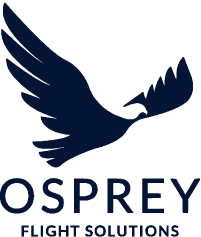Introduction
As countries globally have largely removed or significantly eased travel restrictions that were imposed in response to the COVID-19 pandemic, the commercial aviation sector has seen a significant increase in demand for flights since early 2021. However, the sector has generally been unable to keep up with the renewed demand – particularly on and around key dates, such as Easter, national holidays and the start of the summer holiday period – leading to disruption to flight operations, long queues at airports and an overall deterioration of the passenger experience.
Worker shortages have been identified as one of the main contributing factors to the sector’s inability to meet demand. According to the Air Transport Action Group, in September 2021, there were 2.3 million fewer aviation jobs when compared to pre-COVID levels; airport workers employed by aviation companies other than airport operators were worst affected, with 1.7 million jobs lost. While many aviation entities are trying to resolve their capacity issues by hiring new workers, the process of recruiting and inducting new employees can be a lengthy process. As such, there should be consideration for potential security threats to aviation posed by issues relating to the recruitment, training and deployment of new aviation workers.
Arriving at #Schiphol, I was very happy I had not checked a bag. While it was easy to disembark and leave the airport (although I had to walk quite a bit), passing through baggage reclaim was a shock. Bags everywhere, total chaos, desperate people… 2/#SchipholChaos pic.twitter.com/lVpmbT3wlQ
— Marieke Krijnen ✒️ Academic copyeditor (@MariekeGent) July 17, 2022
Recruitment issues leading to disruption
Recruitment issues have been reported across the global aviation industry, although the impacts of these issues vary between entities. When commercial passenger flights all but ceased at the start of the pandemic due to border restrictions imposed by governments in efforts to prevent the spread of COVID-19, many aviation workers – including pilots, cabin crew, ground-handling staff and security officers – were furloughed, made redundant, or offered early retirement. Many of those who were made redundant sought employment in other sectors, which has since presented a major obstacle to the industry’s recovery as it no longer has the worker capacity to meet growing demand. While hiring more workers is one of the key solutions to the current challenges, across the sector there have been difficulties in attracting applicants, while vetting and training new recruits further slows down the overall process.
Both airlines and airports have been affected by staffing challenges, which have had various impacts on operations, including long queues across check-in, passport and security controls, and issues with loading and unloading luggage and cargo onto flights. Notably, staff shortages causing flight delays and cancellations as well as long queues have affected major airports across different regions, including, but not limited to, Dublin (EIDW/DUB) in Ireland; London Heathrow (EGLL/LHR), London Gatwick (EGKK/LGW), Manchester (EGCC/MAN) and Leeds Bradford (EGNM/LBA) in the UK; Frankfurt (EDDF/FRA) in Germany; Sydney (YSSY/SYD) and Melbourne (YMML/MEL) in Australia; Seattle-Tacoma (KSEA/SEA) in the US; Toronto (CYYZ/YYZ) in Canada; and Amsterdam Schiphol (EHAM/AMS) in the Netherlands. A number of airlines – including British Airways, EasyJet, American Airlines, JetBlue, Air Canada and Lufthansa – are also facing similar disruption to flight operations, leading to scores of flight cancellations and schedule changes due to their own staffing challenges.
Security concerns
The ongoing shortage of aviation workers and mounting pressure on existing employees present several security concerns, which are summarised below.
Unruly passenger behaviour
Long queues at airports have been a significant contributor to rising tensions, particularly when such delays have led to passengers missing flights. Additionally, ground handler shortages have resulted in significant wait times for luggage collection, and airline staff shortages have led to flight cancellations and delays with little notice. Such situations can raise tensions among passengers and have the potential to increase the likelihood of large-scale unruly passenger behaviour, potentially resulting in loss of control over passengers in terminals. There have been several recent reports of police officers having to attend airports across the UK to quell angry passengers being told of flight delays and cancellations.
A Channel 4 documentary entitled “Airport Chaos Undercover: Dispatches“, which aired on 1 August and documented the “delays, cancellations and baggage chaos” that has been occurring at UK airports, included footage recorded by an undercover journalist who had obtained a job as a baggage handler for an airport contractor at Manchester Airport. The footage showed a passenger leaning through the hatch of the baggage carousel between the air- and landside areas offering to help unload luggage after the passenger had been waiting around 1.5 hours. Upon speaking to other workers at the airport, the journalist was informed that abuse by passengers occurs frequently, including incidents of violence against baggage handlers.
Large crowds as a target for terrorist attacks
Aviation continues to be seen as a high-impact target for violent non-state actors (VNSAs) globally, and a range of methods have been employed by such groups to plot/conduct attacks, including targeting landside areas of airports, as demonstrated by the Brussels Airport (EBBR/BRU) and Istanbul Atatürk Airport (LTBA/ISL) attacks in March and June 2016, respectively. Large crowds resulting from queues for check-in, passport and security controls may be particularly attractive targets, especially those in vulnerable landside areas. Notably, staff shortages, particularly of security screeners, at Manchester Airport in the UK have led to several occasions in recent months on which passengers have been forced to queue both inside and outside the terminal.
So the queue just to get into security at Manchester airport is currently through the airport, out the door and halfway through the car park ? V stressful despite being here early. Surely this level of disruption just isn’t sustainable @manairport pic.twitter.com/4iyTZKT1xO
— Andy W (@AndyW606) May 9, 2022
Pressure on security screeners
Those responsible for screening passengers, luggage and cargo are under extreme pressure to conduct examinations both thoroughly and as quickly as possible. Although it is impossible to say that screeners will always detect every item of concern, time pressures coupled with higher numbers of passengers and cargo have the potential to increase the likelihood of screeners inadvertently missing prohibited items.
Exposure to insider threat
Long vetting procedures associated with recruitment have significantly contributed to delays in deploying personnel. In the UK, in efforts to reduce delays, the Department for Transport (DfT) announced on 3 July that it had “accelerated the national security vetting checks” for aviation workers, cutting the wait times for accreditation and counter terrorism checks. The government also amended its rules to allow new recruits to begin parts of their training whilst background checks are being processed. While the DfT has asserted that “the government has focused on delivering these checks as quickly as possible without compromising security”, any changes to vetting procedures have the potential to inadvertently introduce vulnerabilities. For example, conducting the same checks at a faster rate, particularly if they are manual checks, runs the risk of key information being missed and, consequently, individuals passing vetting checks when they should not.
One aim of vetting is to prevent the employment of individuals who are vulnerable to bribery and/or extortion; the corruption of aviation workers is a serious concern given the access and knowledge with which employees are entrusted, and this issue has been exacerbated by the pandemic due to associated economic instability, particularly amid aviation workers. In rare cases, insider access may be abused by individuals for the advancement of VNSA group objectives. Insiders may share a VNSA group’s ideology or be sympathetic to their cause, or they may be duped, bribed, or otherwise coerced into participation. While such incidents are rare, they are a serious concern given the potential for a catastrophic incident.
In July 2021, the UK’s National Crime Agency (NCA) released a statement saying the agency had issued an alert to furloughed port and airport workers warning that they may be at risk of being exploited by organised crime groups (OCGs) as they return to work following the easing of COVID restrictions. https://www.nationalcrimeagency.gov.uk/news/nca-warns-furloughed-port-and-airport-workers-could-be-exploited-by-organised-criminal-groups?highlight=WyJhaXJwb3J0IiwiJ2FpcnBvcnQiLCJhaXJwb3J0J3MiLCJhaXJwb3J0cyJd
In March 2022, a report was published by the Azure Forum for Contemporary Security Strategy, with support from the British Embassy in Dublin, entitled ‘Serious and Organised Crime across Ireland and the UK’, which highlighted that corrupt port and airport workers are “central” to the operations of organised crime gangs in Ireland.
Potential degradation of training quality
Another hurdle following the recruitment and vetting of workers is training them to perform their roles. Refresher training may also be required for workers who were furloughed during the pandemic. Trainers – who are under pressure from employers keen to deploy their recruits – may feel compelled to either complete the training quicker than usual or to certify individuals who they may not deem to have performed adequately during training. Such circumstances could lead to the deployment of workers who are not able to perform their role effectively.
4 hours of waiting for our bags at #yyz #TorontoPearson Airport. All of the people with connecting flights had to leave without their bags. It was total chaos, there were bags around that were from the 18th of June – 10 days ago. Glad to be home now. pic.twitter.com/s5Jg7pxyxQ
— NikkiNineLives (@NikkiNineLives_) June 29, 2022
Response from regulators and industry bodies on safety and security issues
Several civil aviation authorities and industry bodies have issued notices, bulletins and press releases on safety and security issues resulting from an increase in activity as the world emerges from the COVID-19 pandemic. These include the following:
- On 22 June, Airports Council International (ACI) – which represents the interests of 1,950 airports in 185 countries – issued an advisory bulletin on “short-term considerations to identify and mitigate potential safety and/or security issues caused by staff shortages and higher turnover rates”, which included conducting a risk and/or vulnerability assessment on vulnerable areas. The bulletin highlighted insider threat as a global security risk.
- On 18 July, the UK’s Civil Aviation Authority (CAA) issued a safety notice on ‘Commercial, Organisational and Client Pressure in Flight Operations‘, which outlines several sources of commercial and client pressure on operators and crew members – many of which have been exacerbated by the current operating environment – and the potential outcomes from these pressures as well as action to be taken by operators and crew members to mitigate these outcomes. However, as indicated by the notice type, the document does not specify any security issues resulting from these pressures.
- The European Union Aviation Safety Agency (EASA) issued a Safety Information Bulletin (SIB) on ‘Risks Emerging During Ramp-up of Aviation Activities‘ on 28 July, which provided “recommendations to mitigate potential safety risks from airport operational issues”; however, EASA stated that there are currently “no immediate significant safety or security concerns related to the shortage of qualified workforce”.
Outlook
While efforts to recruit new workers are ongoing across the sector, there have been examples of other steps taken by entities to alleviate disruption linked to the worker shortages, particularly in Europe. For example, in Germany, the government has announced plans to relax laws to allow foreign workers to temporarily fill employment gaps in the country’s aviation sector. Additionally, several European airports and airlines have imposed caps on passenger numbers during peak periods as part of efforts to reduce queues at airports, minimise disruption to operations and reduce the workload of aviation workers. For example, Amsterdam Schiphol has set a limit of 73,000 departing passengers per day during August and London Heathrow has set a limit of 100,000 departing passengers per day from 12 July to 11 September, and has also requested that airlines stop selling tickets for the remainder of summer.
However, it remains unclear at this stage whether these measures will be enough to avoid levels of disruption witnessed thus far. In a statement issued on 6 May, ACI Europe stated that, based on a recent survey of European airports, 35% expect that airport and ground-handling staff shortages will affect their operations beyond the summer season. Additionally, the potential remains for the situation to worsen if the aviation industry is not able to build the work capacity to meet the growing demand for flights, particularly in countries where some residual travel restrictions have remained but have either been recently removed or will be eased in the coming months.
While the threats to aviation security posed by the issues discussed above are not unique to the current situation, the increased demand for air travel coupled with the reduced capacities of aviation entities have increased the risk.
Osprey Flight Solutions monitors a wide range of aviation security threats, including pandemic-related issues, unruly passenger behaviour, corruption and terrorism. Osprey will continue to monitor the impacts of aviation worker shortages globally and highlight any potential security threats emanating from these issues to its clients.








